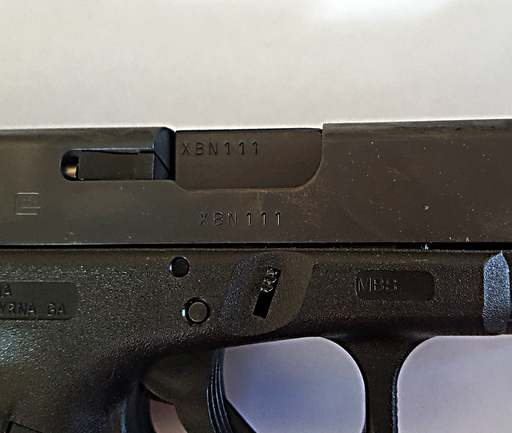Cyberlaw Clinic files amicus brief on behalf of journalists supporting firearms database transparency

Note: A version of this post originally appeared on the Cyberlaw Clinic’s blog.
The Harvard Cyberlaw Clinic filed an amicus brief (pdf) last week in the United States Court of Appeals for the Second Circuit on behalf of a group of data journalists and media organizations, advocating for greater access to government records stored in databases under the Freedom of Information Act (FOIA).
The brief supports the plaintiff-appellee Everytown for Gun Safety Support Fund (Everytown) in an appeal arising out of a FOIA request submitted by Everytown to the Bureau of Alcohol, Tobacco, Firearms and Explosives (ATF). This is the second brief the Clinic has filed on this topic, the first being filed in Spring 2019 in the case CIR v. DOJ.
The ATF hosts a database known as the Firearms Trace System, or FTS. The FTS contains data about the source and movement of firearms recovered by federal, state and local law enforcement. Everytown requested records containing data on successful traces for firearms used in suicides and suicide attempts, aggregated along several axes including state and time period. Everytown specifically requested aggregate data because the ATF’s history of relying on the Tiahrt Amendment, a rider contained in annual appropriations acts from 2003 to 2012 that prohibits disclosure of firearm trace information to non-law enforcement requesters, but allows the release of “statistical aggregate data.”
The ATF did invoke the Tiahrt Amendment, but also claimed that it was not obligated to release aggregate records because doing so would constitute creation of a new record, which is not required of agencies under the FOIA. The ATF outline a detailed process that involved not only locating and producing the responsive records, but also cleaning up the data, filling in missing data points, and producing data visualizations. The ATF argued that these steps exceed what was required under the FOIA.
The District Court for the Southern District of New York found in favor of Everytown, ruling both that the Tiahrt Amendment did not constitute a proper basis for a FOIA exemption and that production of the requested data did not require creation of new records. The ATF then appealed to the Second Circuit.
The amicus brief submitted by the Clinic focuses on the new records question, arguing that access to aggregate data in a database does not require creation of a new record because it uses the same functions as access to individual data points–a task the ATF recognizes is required under the FOIA. The brief provides a brief explainer on the nature of databases and notes that, contrary to the ATF’s argument, there is no technical difference between searching for “raw” data or “aggregate” data. It goes on to argue that there should, therefore, be no legal difference between the two.
The brief also addresses the ATF’s attempt to inflate the time required to respond the Everytown’s request by including data clean up and visualization work, neither of which would be conducted in response to a typical FOIA request. Finally, the brief points out the negative consequences of the ATF’s restrictive view of the FOIA, which would require requesters, agencies and courts alike to have detailed technical knowledge of agency databases in order to make, process and review FOIA requests.
Amici on the brief include:
- MuckRock, a journalism and government transparency nonprofit that has helped thousands of requesters around the United States better file, share and understand freedom of information requests;
- The Reporters Committee for Freedom of the Press, an unincorporated nonprofit association whose attorneys provide pro bono legal representation, amicus curiae support and other legal resources to protect First Amendment freedoms and the newsgathering rights of journalists;
- Dana Amihere, data editor at Southern California Public Radio (KPCC/LAist);
- Meredith Broussard, an associate professor at the NYU Arthur L. Carter Journalism Institute and author of “Artificial Unintelligence: How Computers Misunderstand the World”;
- Stephen K. Doig, a senior faculty member of the Walter Cronkite School of Journalism at Arizona State University; and
- Jeff South, a retired professor from Virginia Commonwealth University who specializes in data journalism.
The Cyberlaw Clinic is honored to have represented these amici and hopes the Second Circuit Court of Appeals will take into account their expertise. The brief was written by Spring 2020 clinical students Sarah Alawi, Stephany Bai and Lauren Yonkoski with supervision from Clinical Instructor Mason Kortz.